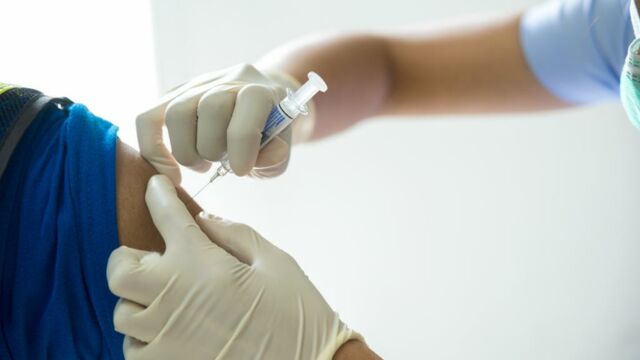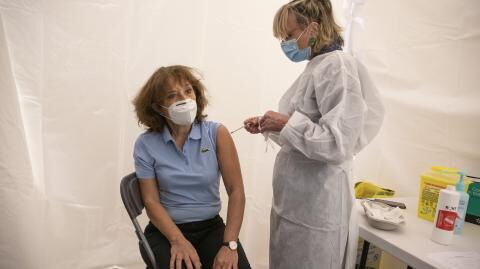Many of us may have had a vaccine at least once in our lives and remember it as being a one and done experience, so why do we need to have two doses of the coronavirus vaccines such as those by Pfizer, Moderna and Oxford?
Discover our latest podcast
Dr Fauci explains why vaccines come in two doses
As vaccines from Pfizer, Moderna and Oxford each made the headlines they all had one thing in common each vaccine required a second dose approximately four weeks after the first. In the UK this wait has been extended to 12 weeks in order to ensure as many people as possible have access to their first doses.
This move has prompted many to wonder what the purpose of the second jab is, and if we even need to take it.
After much confusion American immunologist Dr Fauci finally explained to us why we need two doses of the vaccines. The Dr explained to CNN that the first dose acts as a ‘primer’ while the second acts as a ‘booster’ for ‘optimum immunity’:
What you have is you get some degree, not optimal, but some degree of immunity a couple of weeks after the first dose. That's not optimal. After the second dose, you get optimal immunity anywhere from seven to 10 days after the second dose.
About 12 days after the first dose the first jab will start to provide some level of immunity to coronavirus. But, in order to achieve the 95% protectin rate offered by the likes of Pfizer and Moderna’s jabs, you need to take a second dose of the vaccine.
Professor in molecular immunology at the London Metropolitan University, Gary McLean has also spoken out to explain that by taking two doses of the COVID-19 vaccine, your immune system will build a better memory of the virus in order to attack it quicker in the future:
The first shot primes the immune response and the second shot mobilises the cells again to respond even stronger – the result being a much better and hopefully prolonged immune response that retains memory.
What happens if you only get one dose of the COVID vaccine?
McLean continued to explain that without a second dose the immune response just wouldn’t last long enough to provide adequate immunity:
Without the second dose I would suggest that the immunity gained will not be strong enough and will not last long enough – particularly for the genetic vaccines such as Pfizer.
The shorter-term protection offered by just one dose of the coronavirus vaccine would also make it harder for countries to achieve herd immunity. WebMD has also revealed that with just one dose, the efficacy of both Moderna and Pfizer vaccines drop from 95% to around 50%.
However, there are many reasons why people may only get one dose of the vaccine. Reasons such as missed appointments and long journeys to vaccination centres have already caused many people to skip their first dose let alone their second.
Those who fall pregnant may also miss their second dose as the vaccines aren’t recommended for pregnant women unless absolutely necessary.
Professor Stephen Evans, a pharmacoepidemiologist at the London School of Hygiene & Tropical Medicine even revealed that some people may get a sore arm from their first jab or fall ill (independently of the vaccine) and be put off from getting their second.
However, some immunity is better than none at all. Professor Evans reiterated:
If everyone were to get one dose, that would make me much happier than 50 per cent getting two doses and 50 per cent not getting it all.















